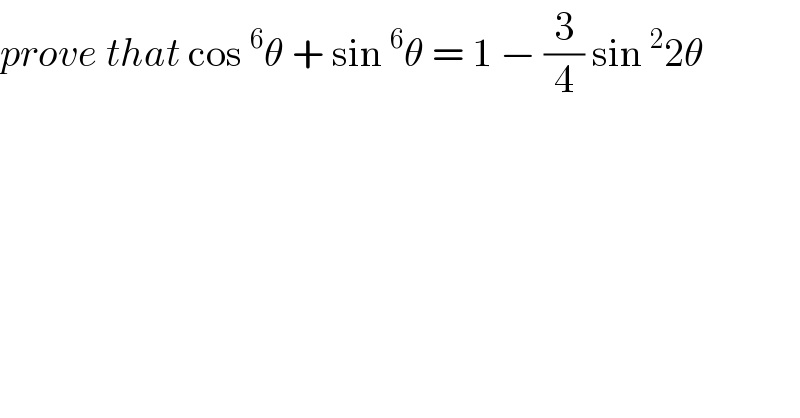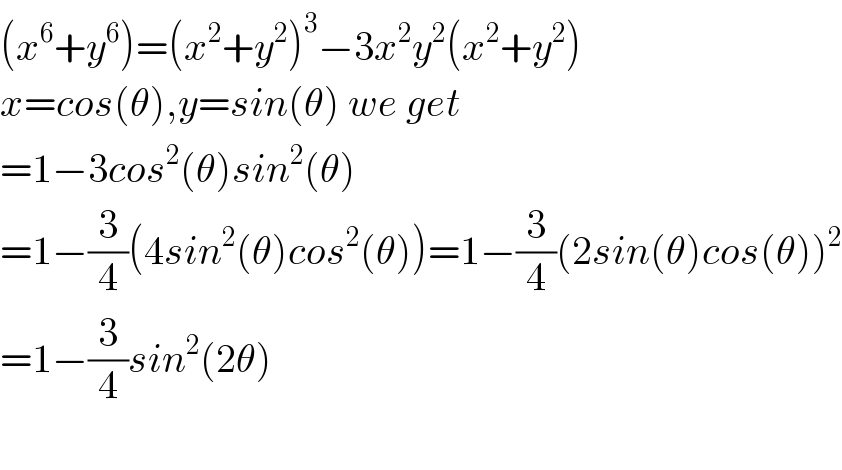
Question and Answers Forum
Question Number 79751 by Rio Michael last updated on 27/Jan/20

Answered by mind is power last updated on 27/Jan/20

Commented by Rio Michael last updated on 27/Jan/20

Answered by Henri Boucatchou last updated on 28/Jan/20

| ||
Question and Answers Forum | ||
Question Number 79751 by Rio Michael last updated on 27/Jan/20 | ||
 | ||
Answered by mind is power last updated on 27/Jan/20 | ||
 | ||
| ||
Commented by Rio Michael last updated on 27/Jan/20 | ||
 | ||
Answered by Henri Boucatchou last updated on 28/Jan/20 | ||
 | ||
| ||